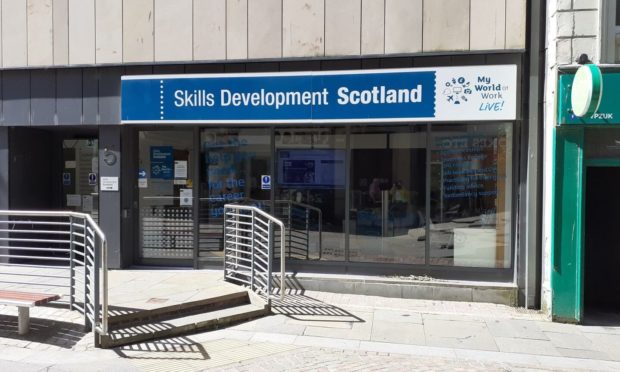Many organisations are having to retrain and upskill young people due to the impact of the Covid-19 pandemic on youth employment.
The United Nations first recognised World Youth Skills Day in 2014 to highlight the importance of equipping young people for their entry into the workforce.
It also promotes youth entrepreneurship and innovation in business which is necessary to boost post-pandemic recovery.
The impact of Covid-19 has affected 768 million learners across the globe according to UNESCO, due to partial or full lockdowns.
In Scotland, the youth employment sector has been hit hard by the pandemic with many young people being furloughed or no longer having a job.
According to the Office of National Statistics, there were 114,000 fewer jobs in Scotland at the end of 2020 than in 2019. Sectors such as entertainment and hospitality, where the workforce is mainly young people, bearing the brunt of job losses.
During 2020, youth unemployment in the Highlands had risen by 116% from March to December, according to Bank of England figures.
For young people, this has meant a rethink in long and short term career goals. Skills Development Scotland therefore, have been adapting their approach to supporting young people to redirect their careers and ambitions.
‘Encouraging young people to consider new possibilities’
We spoke to Anthony Standing, who is Skills Development Scotland’s head of operations north, based in Inverness about what SDS is doing in order to best support young people who are struggling to find work.
Q. How are you helping young people following Covid-19’s impact on youth employment in the region?
A. SDS in the north of Scotland has continued to adapt delivery of our services. Our centres in the north are open and young people can meet our advisers and find out more about employment, training and other opportunities. Our advisers are in secondary schools across the region offering dedicated support to young people leaving school to help them secure work, training, education and apprenticeships. The key thing for us is that no one is left behind, so we reach out to all young unemployed people to help them take advantage of all opportunities.
Q. What is being done across the region to help retrain and upskill young people who are out of work?
A. SDS offers young people intensive coaching support, quickly identifying each young person’s need and then working with them and others to support their move into employment, an apprenticeship, college, higher education, volunteering, or other training opportunities.
We also work with partners to ensure that provision in our areas is joined up and offered according to each person’s need – such as our apprenticeship programmes, which are a key route to help young people upskill, retrain or even enter the labour market for the first time.
Q. How are you preparing to arm the next generation of young workers just coming into the workforce?
A. SDS collaborates with other employability partners in our areas to highlight the services and initiatives that are available for young people and that will directly help them as they come into the workforce.
SDS reaches out proactively to young people to encourage them to access this support. The Young Person’s Guarantee ensures that all young people will have the opportunity to work, study or train and be in a better position to build a future. It’s also about encouraging young people to consider new possibilities, new jobs in new and emerging sectors, and thinking about changing routes and pathways.
We’re working closely with the Developing Young Workforce teams across the region to do many of these things, including facilitating direct learning between employers and young people, of which one aim is to prepare young people for the working environment while in school and the transition beyond.
Q. How do you see youth employment within the region in the next few months?
A. While the challenges for young people across the region remain, I’m encouraged by the amount of opportunities that are emerging in the labour market in all areas. We’ve done online sessions highlighting these opportunities which include apprenticeships or training in sectors including digital and cybersecurity.
Employers in the tourism, hospitality and food and drink sectors are very keen to speak with young people. The health sector is also actively recruiting across a range of careers as is the green sector.
The key is that young people should engage with support services like SDS to help them access these opportunities and overcome any barriers they might be facing.

